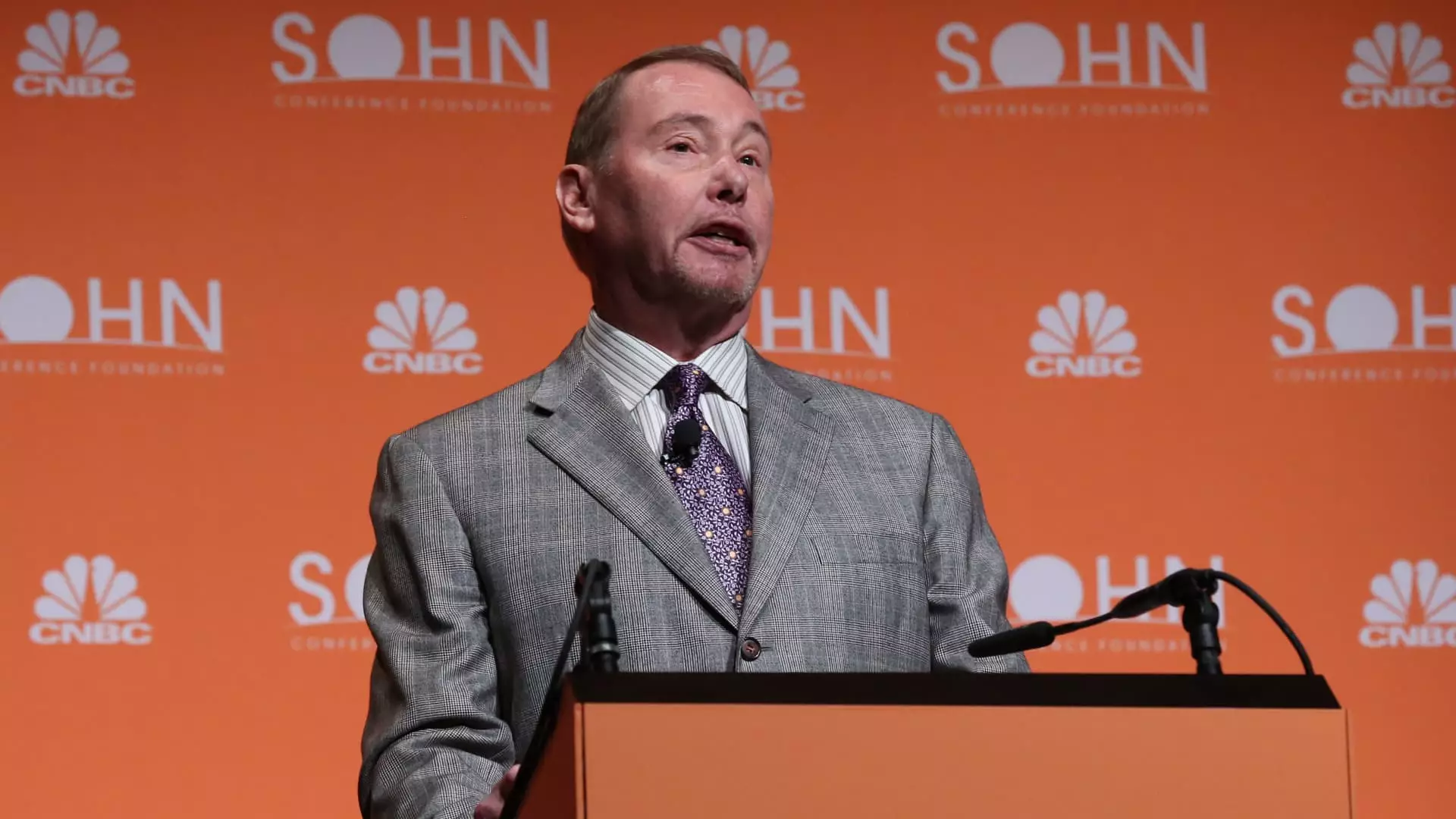The dynamics of U.S. politics can significantly influence economic indicators, including interest rates. In this context, Jeffrey Gundlach, CEO of DoubleLine Capital, recently shared insights on how Republican control of the House of Representatives, coupled with a Trump presidency, might lead to increased spending and debt levels. With an investment management firm overseeing assets exceeding $96 billion, Gundlach’s perspective carries weight in discussions surrounding fiscal policy and its ramifications on the economy.
Gundlach warns that if Republicans secure a majority in the House, the resulting scenario could lead to expansive government spending without significant restraint. This likely increase in expenditures would necessitate additional borrowing, putting upward pressure on Treasury yields. In a statement made on CNBC, Gundlach articulated his concerns over the potential rise in debt, emphasizing that this could alter the Federal Reserve’s approach to monetary policy as they grapple with rising costs associated with government financing.
The Current Fiscal Landscape: A Recipe for Increased Borrowing
The current fiscal landscape is alarming, with federal budget deficits having exceeded $1.8 trillion in fiscal 2024 alone. This extensive deficit is compounded by over $1.1 trillion allocated solely to servicing the soaring U.S. national debt, which now exceeds $36 trillion. Such figures should ideally invoke caution among policymakers and investors alike. However, the prospect of a unified government under Trump raises questions about fiscal discipline, especially as proposals for tax cuts have surfaced.
Gundlach points out that if the Trump administration pursues the extension of tax cuts from 2017 or introduces new reductions, it could exacerbate the nation’s debt crisis in the coming years. His commentary reveals a concern that fiscal policies oriented towards tax reductions can lead to a significant increase in deficits, ultimately challenging the sustainability of government fiscal health.
Interestingly, while Gundlach expresses concern over potential fiscal irresponsibility, he also foresees a diminishing likelihood of recession in light of a Trump presidency. This perspective suggests a paradoxical effect where increased spending could stimulate economic growth, albeit at the expense of long-term debt sustainability. “The odds of recession drop when you have this type of agenda being promoted,” Gundlach noted, implying that the aggressive economic policies supported by Trump may foster optimism and lessen the risk of a downturn.
However, this view is not without its critics. Opponents argue that the reliance on stimulus and expanded fiscal measures could create an unsustainable model dependent on increasingly high levels of borrowing, potentially leading to detrimental consequences down the line. A closer look at historical trends shows that unrestrained spending could undermine economic stability, especially if it surpasses growth in revenues.
The link between political control and economic policy is delicate and complex. As the potential for Republican dominance becomes more pronounced, the financial markets may react, anticipating shifts in fiscal policy that could impact interest rates and borrowing. What remains to be seen is how the Federal Reserve will navigate this evolving landscape, especially with increased pressure on their monetary policy toolkit in the face of rising governmental debt. Investors must stay vigilant, as the interplay between government strategies and market responses will define the economic frontier in the years ahead.

